2018.07.24 16:00 - 18:00
-
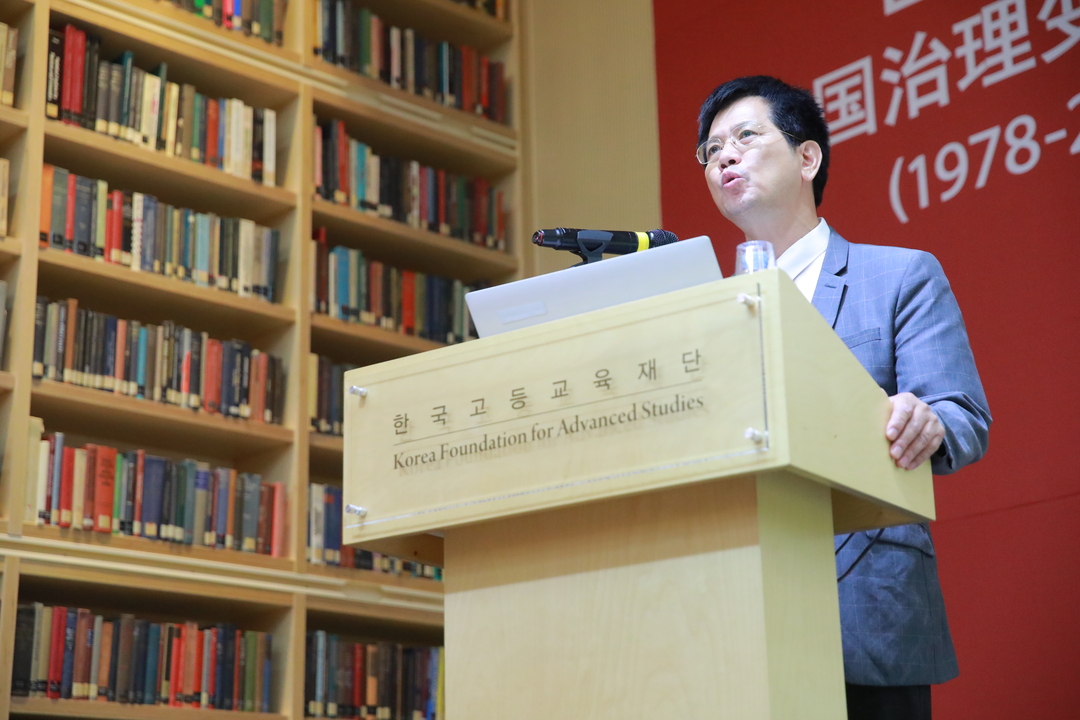
[CLS 36] Prof. Yu Keping
#China
#Reform and Opening-up
#Governance
-
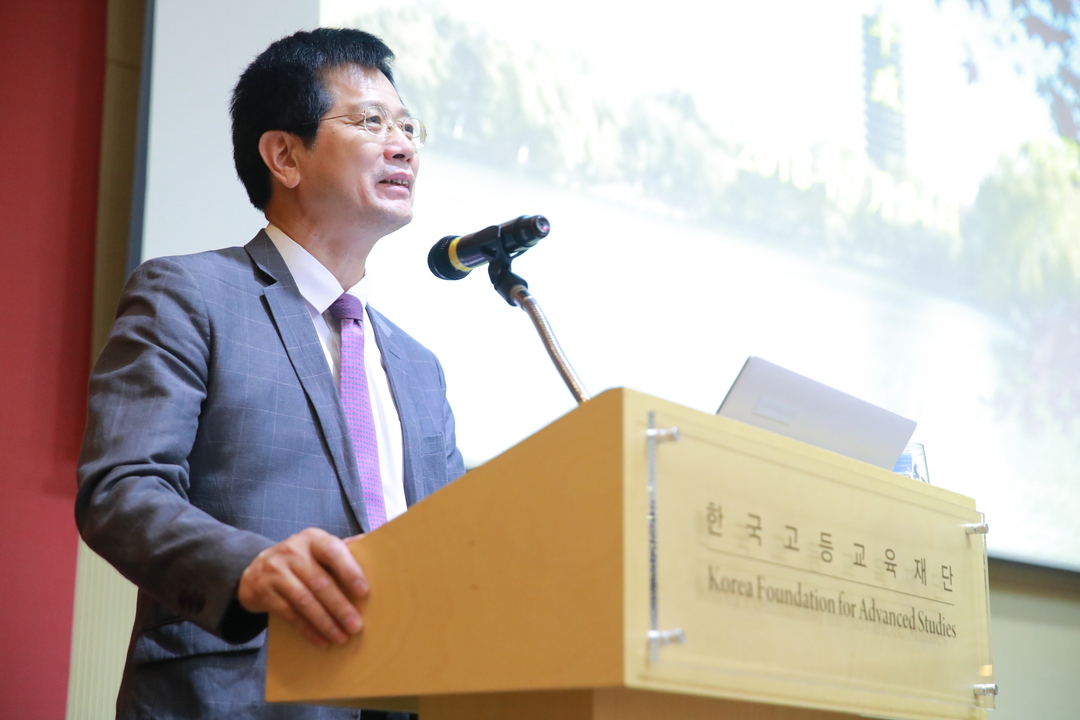
[CLS 36] Prof. Yu Keping
#China
#Reform and Opening-up
#Governance
-
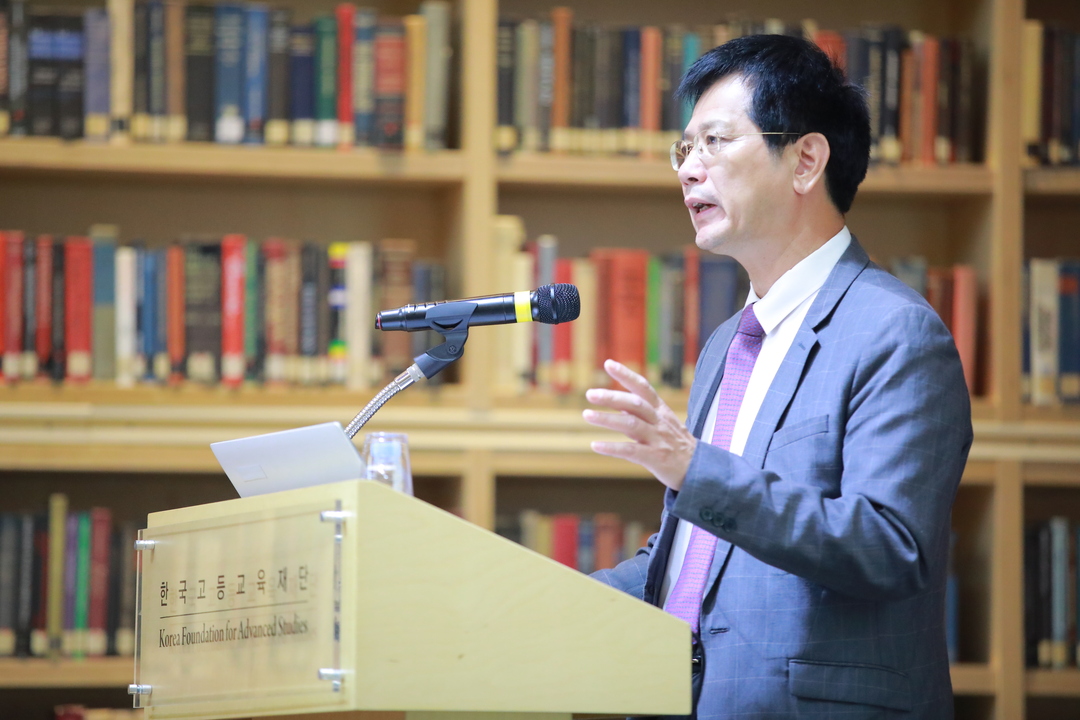
[CLS 36] Prof. Yu Keping
#China
#Reform and Opening-up
#Governance
-
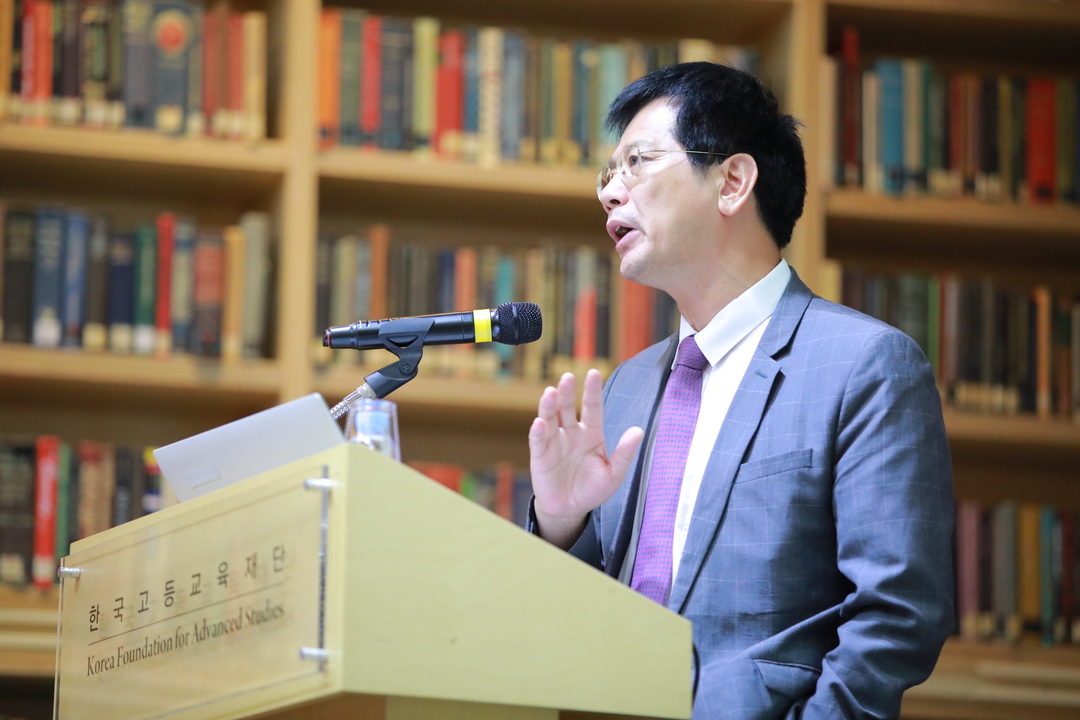
[CLS 36] Prof. Yu Keping
#China
#Reform and Opening-up
#Governance
-
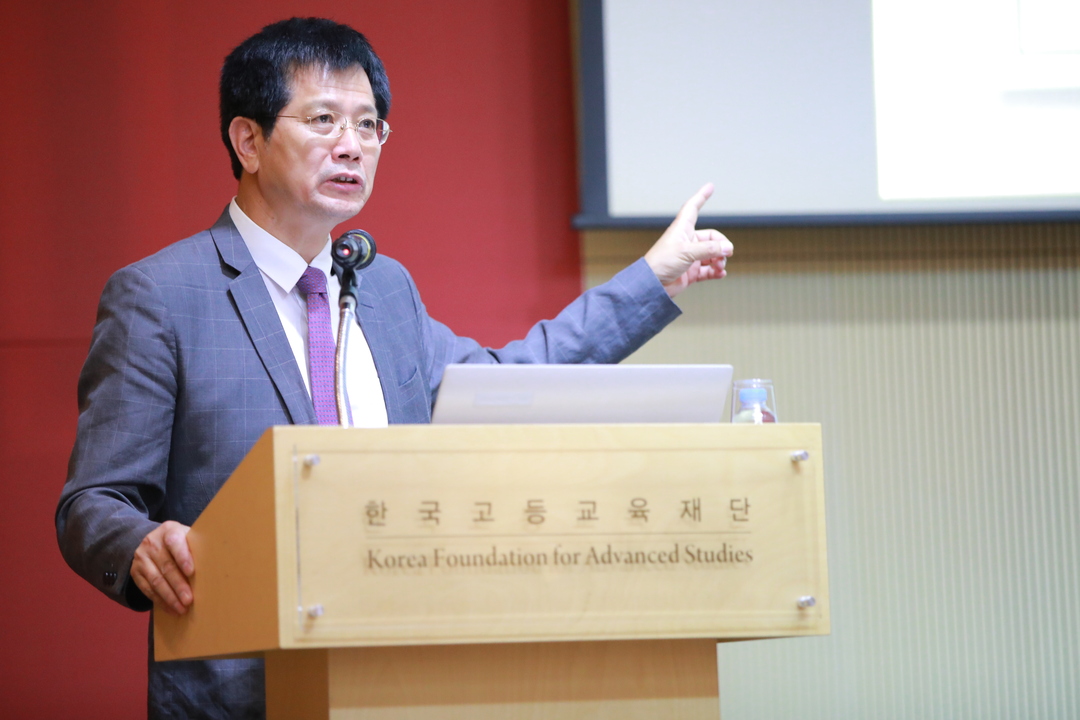
[CLS 36] Prof. Yu Keping
#China
#Reform and Opening-up
#Governance
-
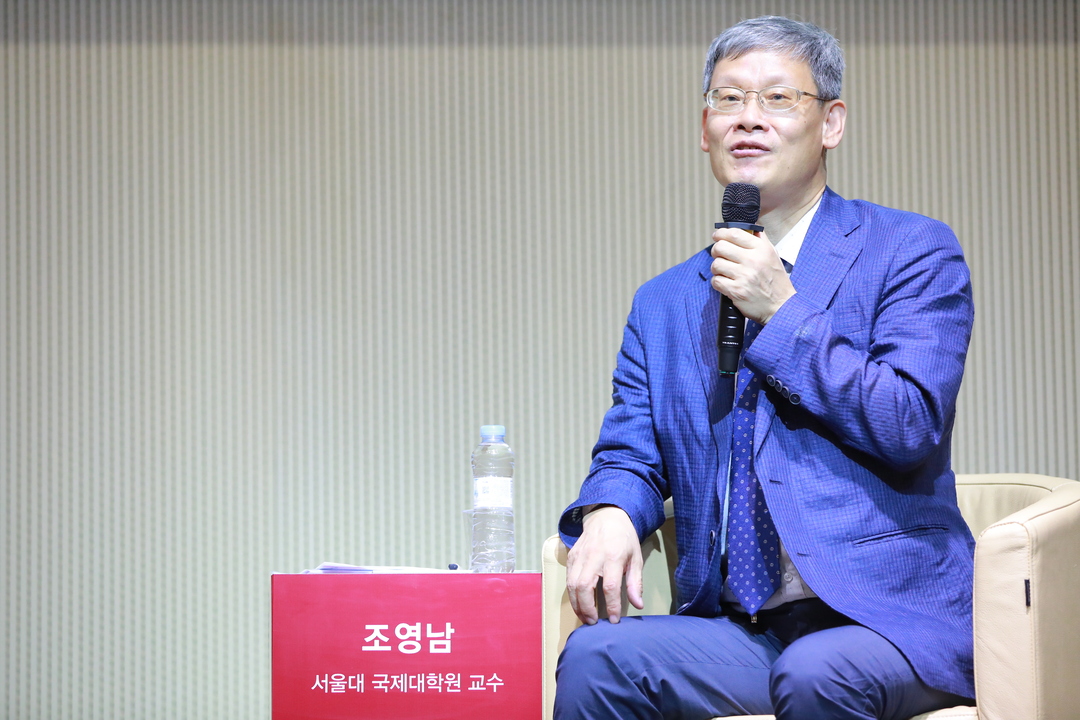
[CLS 36] Discussant_Prof. CHO
#China
#Reform and Opening-up
#Governance
-
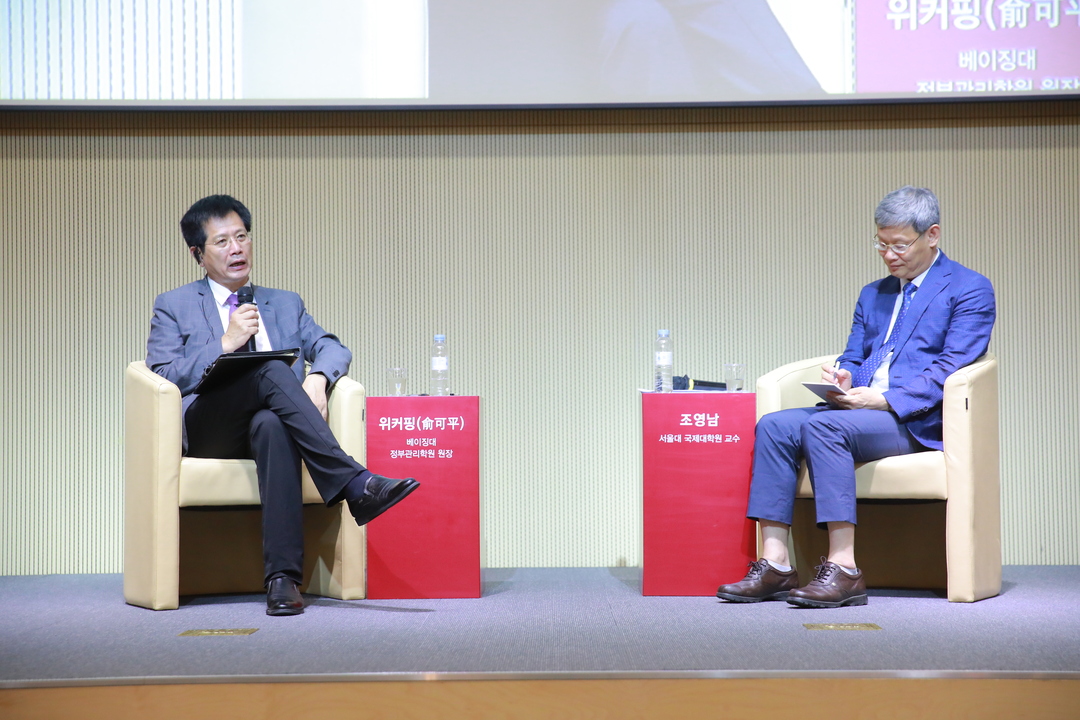
[CLS 36] Discussant_Prof. CHO
#China
#Reform and Opening-up
#Governance
On July 24th Korea Foundation for Advanced Studies (KFAS) invited Prof. Yu Keping of Peking University to give a lecture on “Forty Years of China’s Governance Reform (1978-2018)” as the 36th lecture in the KFAS China Lecture Series. Based on his extensive research on China’s political reform and the role of civil society, Prof. Yu introduced the changes in China’s governance and the way forward to some two hundred audience gathered at the KFAS Conference Hall in Seoul.
Prof. Yu opened his lecture by pointing out that this year marks the 40th anniversary of China’s reform and opening. Since 1978, China has experienced breathtaking changes not only in its economy but also in its social, political, and cultural domains. Prof. Yu said what’s notable is that China has successfully maintained stability despite such sweeping changes, and the key lies in the mix of ‘change and constancy’: China opened and reformed while maintaining its core values. Even though the CCP’s one-party rule didn’t change, its way of governing has consistently evolved.
According to Prof. Yu, China’s political reform was carried out mainly in the governance area. When examined through the lens of Western political science, China’s politics may not seem to have changed much, he said, but, in its own way, Chinese political environment went through profound changes: The provincial governments have gained greater autonomy vis-à-vis central government, and the society gained much independence vis-à-vis the state with the emergence and expansion of diverse private sectors.
As to the drivers of a governance reform, Prof. Yu mentioned the advancement of market economy, increased political demands by the citizens, and the impact of globalization. Now that their demands for basic necessities of life are satisfied, more and more Chinese people are seeking political participation. Changes in China’s political ideology also contributed to this shift. In the days of class strife, certain groups had to be designated as ‘enemy,’ but now it is generally accepted that every citizen has the right to enjoy justice and equity. He added that the CCP itself has been transformed from a revolutionary to governing party, and thus is trying to solve problems through more democratic and legal means.
The subsequent discussion was led by Prof. Cho Young-nam of Seoul National University. When asked to evaluate the “candlelight revolution” of Korea, Prof. Yu answered that though it is commendable that Korea is deeply devoted to vitalizing democracy amid the global democratic recession, he doesn’t find it encouraging that many former presidents face trials after change of regime.
When asked about the areas where further reform is needed, he answered that the government must reform the way it maintains stability. Though stability itself is important, the government should be able to maintain it while allowing citizens to freely voice their opinion. Prof. Cho then pointed out that Chinese and foreign scholars differ much in their evaluation of China’s political reform. Prof. Yu answered that much of China’s important political decisions are made behind the scene, which leads to limited understanding of reality by foreign scholars. He also pointed out that Western and Chinese scholars have different points of view and that they should understand China’s political and academic culture in which the scholars find it hard to criticize the government in public.
In the Q&A session, many asked about the increasing power of President Xi Jinping. Prof. Yu answered that though it is true that power is being concentrated on him, concentration of power itself is a neutral thing. He argued that what’s important is maintaining balance between concentration and separation of power, and while China should strive for decentralization of power, some cases, such as anti-corruption campaign, ask for a strong, centralized drive from the authority. He added that China, of course, needs to fur
YU Ke-ping, CHO Young Nam